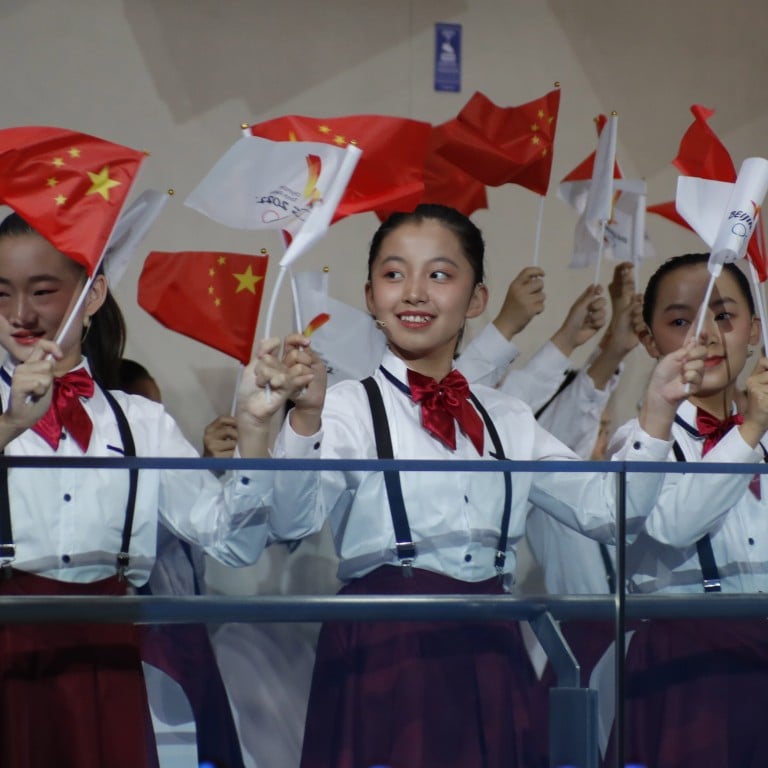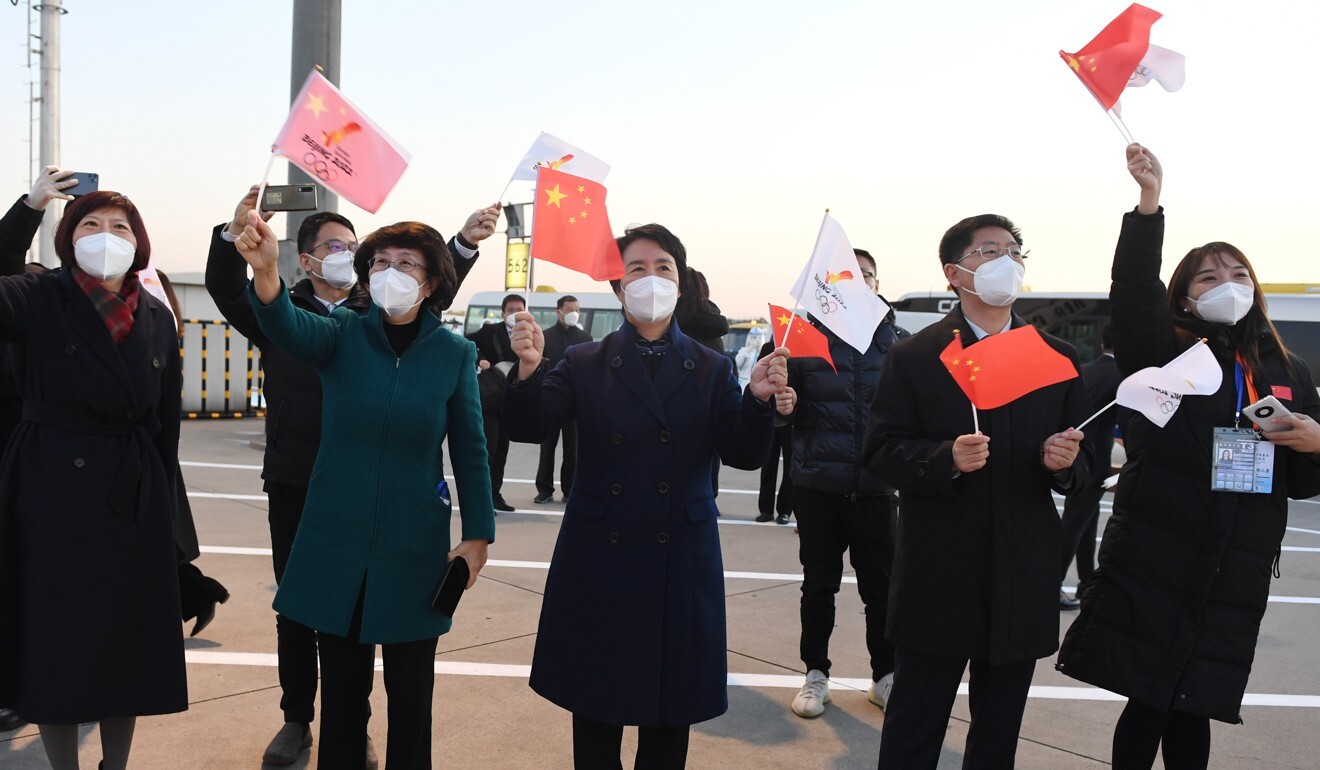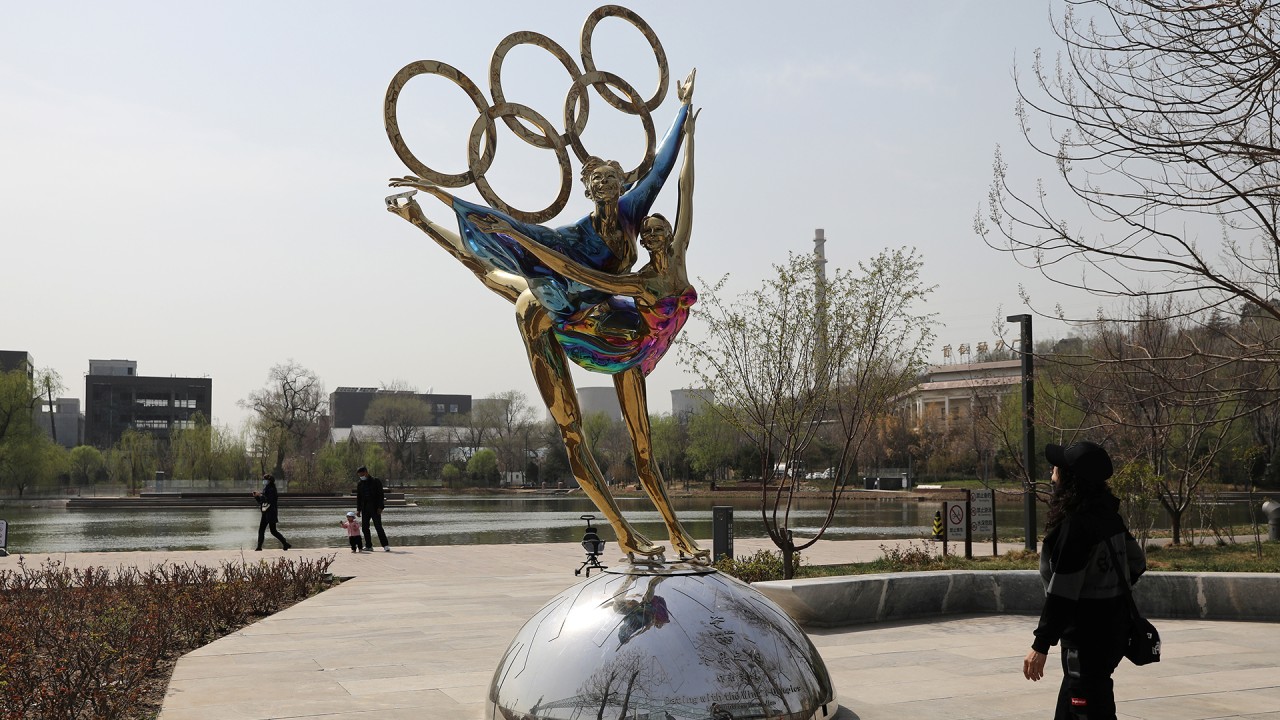
How will the Beijing 2022 Olympics differ from Tokyo 2020?
- China is out for a soft power win with the 2022 Winter Olympics in Beijing, but will have to deal with Covid-19, boycott chatter and geopolitical tension
- Tokyo 2020 offered a playbook on how to host a Games in the pandemic landscape, but Beijing has more to worry about than their Japanese counterparts did
Beijing 2020 kicked off its torch lighting ceremony like any Olympics does, with a protest.
Protests are now the norm when it comes to the Olympics. Tokyo 2020 was interrupted at almost every point of its torch relay with Japanese protesters who didn’t want to see the Games go ahead due to a potential spike in cases and deaths related to Covid-19.
Tokyo did a good job hosting the Games, but its soft power win was muted as the pandemic did not ease and there was no tourism or international exposure boom from hundreds of thousands of overseas fans pumping money into the local economy. They got the win, but it was an ugly one.

China was surely taking notes, and now it has two playbooks to draw from. One on how to host one of the world’s largest sporting events during a pandemic, and another on how to handle protests, demonstrations and negative press. Given Tokyo 2020 was delayed a year, Beijing 2022 could have striking similarities to its Asian counterpart.
China won’t have to deal with localised protests leading up to the Games, given the government has proved adept at stifling internal dissent, but this won’t stop a global community from picking at its alleged human rights violations right up until the opening ceremony on February 4 at the National Stadium in Beijing.
Will IIHF pull China’s men’s ice hockey team from the Olympics?
Bach won’t have this problem with Beijing 2020, since China needs these Games more than Tokyo 2020 for a soft power win. The country finds itself at a precarious point in its history; it’s impossible to miss the various tension points at home and abroad.

04:50
What can Beijing 2022 learn from the pandemic-delayed Tokyo 2020 Olympics?
Where Tokyo 2020 missed the mark is where Beijing 2022 could score a win. Watching the opening and closing ceremonies in Japan without fans was an odd sight, one that Bach admitted he regrets.
China has said there will be local fans at the opening and closing ceremonies, and at a number of events. This is something they need to key on because right now the rest of the world has moved on from Covid-19 when it comes to large scale sporting events. From the English Premier League and the National Football League to Nascar and Major League Baseball, the North American and European sporting landscape is pretty much back to normal, whatever that means these days.
Without the help of overseas spectators, China is going to have to fill seats with locals, and you can bet they will. Events will look sold out, but the crowds will definitely have an odd feel to them. This will give Beijing 2022 an added element that Tokyo was so sorely lacking, the roar of the fans.
Of course, Beijing is going to have to manufacture this, and create the illusion that these Games are normal, when in fact, they are anything but. If anyone is up to this type of task it is China, and it will get a chance to host a highly controlled Olympics in a tense atmosphere while the entire world watches sceptically.

